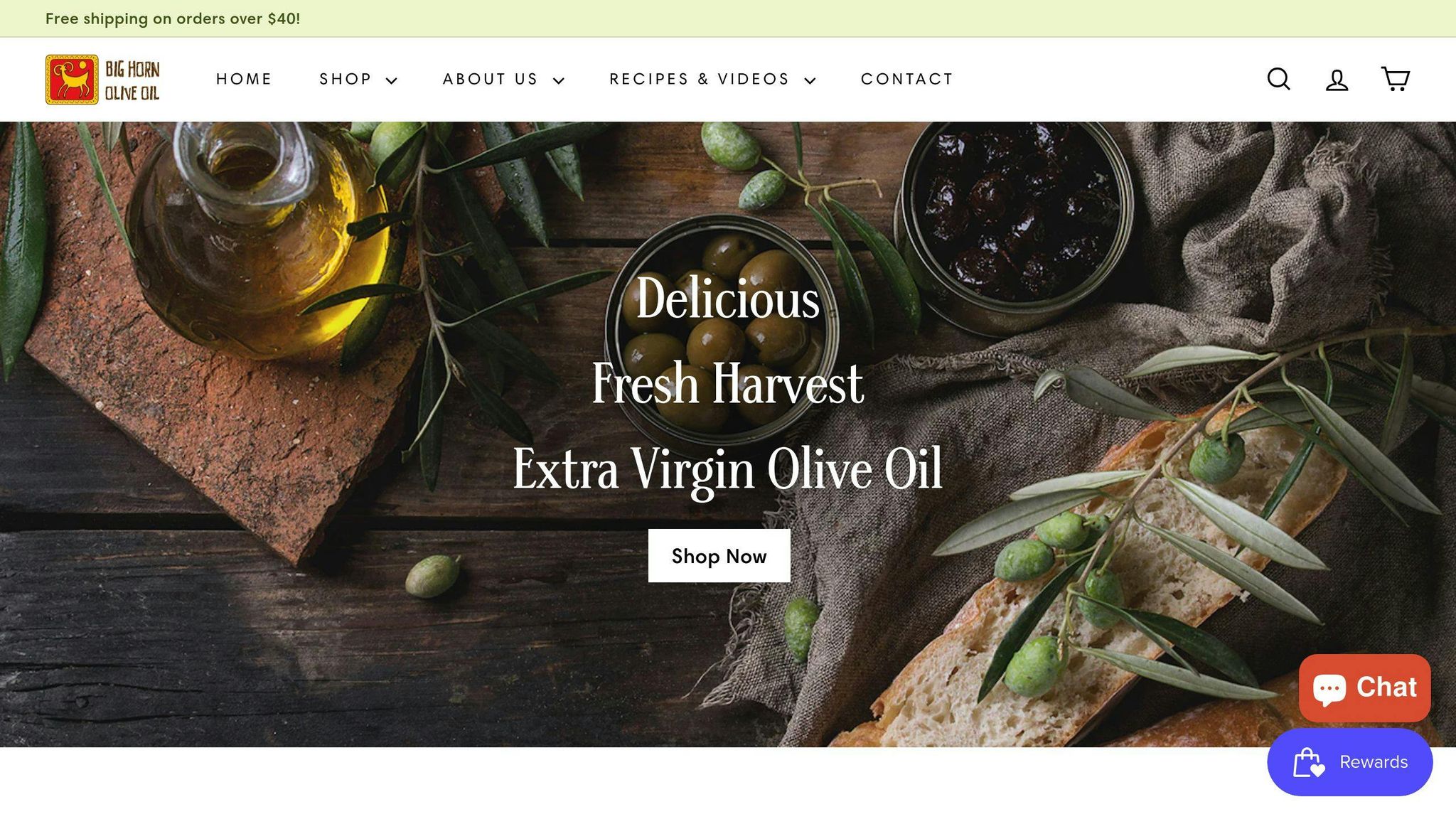How PGI Protects Balsamic Vinegar of Modena
PGI (Protected Geographical Indication) ensures that Balsamic Vinegar of Modena is authentic, made in Modena, Italy, using specific grapes and traditional methods. This certification protects producers from imitations and guarantees consumers a high-quality product. Here’s what PGI certification means:
- Origin: Must be produced in Modena, Italy, using local grape varieties like Lambrusco and Trebbiano.
- Aging: Minimum 60 days, with premium options aged for years for deeper flavors.
- Labeling: Includes the PGI logo, “Aceto Balsamico di Modena,” and detailed production info.
- Production: Allows modern techniques like adding wine vinegar and caramel for consistency.
PGI vs. PDO (Quick Comparison)
| Certification | Minimum Aging | Production Methods | Use Case |
|---|---|---|---|
| PGI | 60 days | Modernized (e.g., wine vinegar, caramel) | Everyday cooking (dressings, marinades) |
| PDO | 12 years | Stricter, time-honored techniques | Gourmet dishes, special occasions |
PGI-certified balsamic vinegar offers a balance between quality and affordability, making it accessible for daily use while preserving Modena’s vinegar-making traditions.
Balsamic Vinegar of Modena PGI: The Bellei Vinegar Factory Story

Understanding PGI Certification
Protected Geographical Indication (PGI) is a certification system designed to safeguard the quality and origin of traditional European products. For Balsamic Vinegar of Modena, this certification guarantees that production follows specific, regulated standards.
PGI and Regional Heritage
This certification highlights the deep connection between Balsamic Vinegar and its origin, Modena, Italy. It ensures that traditional production methods, passed down through generations, are preserved. To qualify for PGI, the vinegar must be made using local grape varieties such as Lambrusco, Sangiovese, and Trebbiano.
Legal Framework and Consumer Confidence
The European Union enforces strict rules for PGI-certified balsamic vinegar. These include a minimum aging period of 60 days, adherence to time-honored techniques, and clear labeling. This system not only helps consumers trust the authenticity of the products they buy but also protects producers from unfair competition.
Characteristics of PGI-Certified Balsamic Vinegar of Modena
PGI-certified Balsamic Vinegar of Modena stands out for its adherence to strict traditions and quality requirements, ensuring a product that meets high standards.
Labeling and Production Standards
Each bottle must prominently feature "Aceto Balsamico di Modena", along with the blue and yellow PGI logo, producer details, production lot number, net volume, and a list of ingredients. These labels help buyers identify genuine balsamic vinegar with confidence.
The production process is carefully regulated to preserve traditional methods and maintain quality. PGI certification requires specific grape varieties, at least 60 days of aging, and traditional production techniques. Many producers go beyond this minimum aging period, crafting vinegars with a rich balance of sweet and tangy flavors.
Key production requirements are outlined below:
| Production Element | Requirement |
|---|---|
| Grape Varieties | Lambrusco, Sangiovese, Trebbiano, Albana, Ancellotta, Fortana, Montuni |
| Minimum Aging | 60 days |
For those looking for certified options, brands like Big Horn Olive Oil offer reliable sources of authentic balsamic vinegar from Modena. These rigorous standards ensure that each bottle delivers the heritage and quality associated with the PGI label.
sbb-itb-4066b8e
Comparing PGI and PDO Certifications
PGI and PDO certifications represent different standards for quality and production, giving consumers clear options when selecting balsamic vinegar.
Aging Requirements Compared
Aging is a key distinction between the two certifications. PGI balsamic vinegar must age for at least 60 days, while PDO-certified vinegar requires a minimum of 12 years. This extended aging for PDO vinegar creates a richer and more nuanced flavor.
| Certification | Minimum Aging |
|---|---|
| PGI | 60 days |
| PDO | 12 years |
Differences in Production Methods
PDO balsamic vinegar follows stricter, time-honored techniques, such as cooking grape must at high temperatures, natural fermentation, and aging in wooden barrels.
In contrast, PGI certification allows for modernized methods, including:
- Adding wine vinegar to cooked must
- Using up to 2% caramel for color adjustment
- Greater flexibility in the types of aging vessels used
These variations in production and aging shape how each type of vinegar is used in cooking.
Choosing Between PGI and PDO
Your choice between PGI and PDO balsamic vinegar depends on how you plan to use it. PGI vinegar, with its lighter flavor, is perfect for everyday cooking, whether you're making salad dressings or marinades.
PDO vinegar, on the other hand, is more intense and premium-priced. It's best for special occasions - ideal for drizzling over cheese, finishing gourmet dishes, or even as a thoughtful gift.
Benefits of PGI Certification for Consumers
Protection from Counterfeits
PGI certification safeguards consumers by guaranteeing that the balsamic vinegar they purchase is made in Modena using time-honored methods and specific grape varieties like Lambrusco and Trebbiano. This ensures the vinegar retains its genuine flavor and connection to Modena's heritage.
Assured Quality and Tradition
With PGI certification, consumers can trust they’re getting consistently high-quality products. This certification enforces strict standards, including a minimum 60-day aging process, the use of seven specific grape varieties, and production exclusively within the province of Modena. These requirements maintain a balance between preserving tradition and meeting modern production demands, making authentic balsamic vinegar available to a global audience.
Beyond quality control, PGI certification protects centuries-old production techniques while accommodating today's market. Shoppers can identify authentic products by looking for the PGI logo and confirming the vinegar's origin in Modena.
Big Horn Olive Oil: Offering Certified Balsamic Vinegars

Commitment to Quality and Tradition
Big Horn Olive Oil partners with producers in Modena, Italy, to source PGI-certified balsamic vinegars crafted using time-honored methods. This ensures their products reflect the highest standards, using top-quality ingredients and preserving traditional production techniques.
Highlighted Products
Big Horn Olive Oil features a selection of premium balsamic vinegars, including:
- Traditional 18-Year Aged Dark Balsamic Vinegar for $8.99: Known for its rich and layered flavor profile.
- Molto Denissimo 25-Year Aged Dark Balsamic Vinegar for $12.99: Offers an unmatched depth and complexity.
These prices apply to smaller bottles, making high-quality balsamic vinegars more accessible to a broader audience.
| Product | Age | Price |
|---|---|---|
| Traditional Dark Balsamic | 18 Years | $8.99 |
| Molto Denissimo Dark Balsamic | 25 Years | $12.99 |
Beyond selling products, Big Horn Olive Oil emphasizes educating customers about the qualities that set authentic balsamic vinegars apart. By offering PGI-certified options, they honor Modena's rich heritage while ensuring customers enjoy the genuine taste and quality these certifications represent.
Conclusion: The Role of PGI in Protecting Culinary Heritage
The Protected Geographical Indication (PGI) certification safeguards the heritage and integrity of Balsamic Vinegar of Modena. By enforcing strict guidelines rooted in traditional methods and local ingredients, it ensures every bottle represents the rich culinary traditions of Modena.
This certification does more than just uphold quality - it preserves Modena's culinary history by maintaining time-honored acetification techniques. These rigorous standards bridge the gap between historical practices and modern production, ensuring the legacy remains intact.
Through its strict requirements, PGI guarantees that each bottle delivers authentic taste and quality. This dedication has elevated Balsamic Vinegar of Modena into a globally respected product. Choosing PGI-certified balsamic vinegar means enjoying superior quality while actively contributing to the preservation of Modena’s culinary traditions for future generations.

